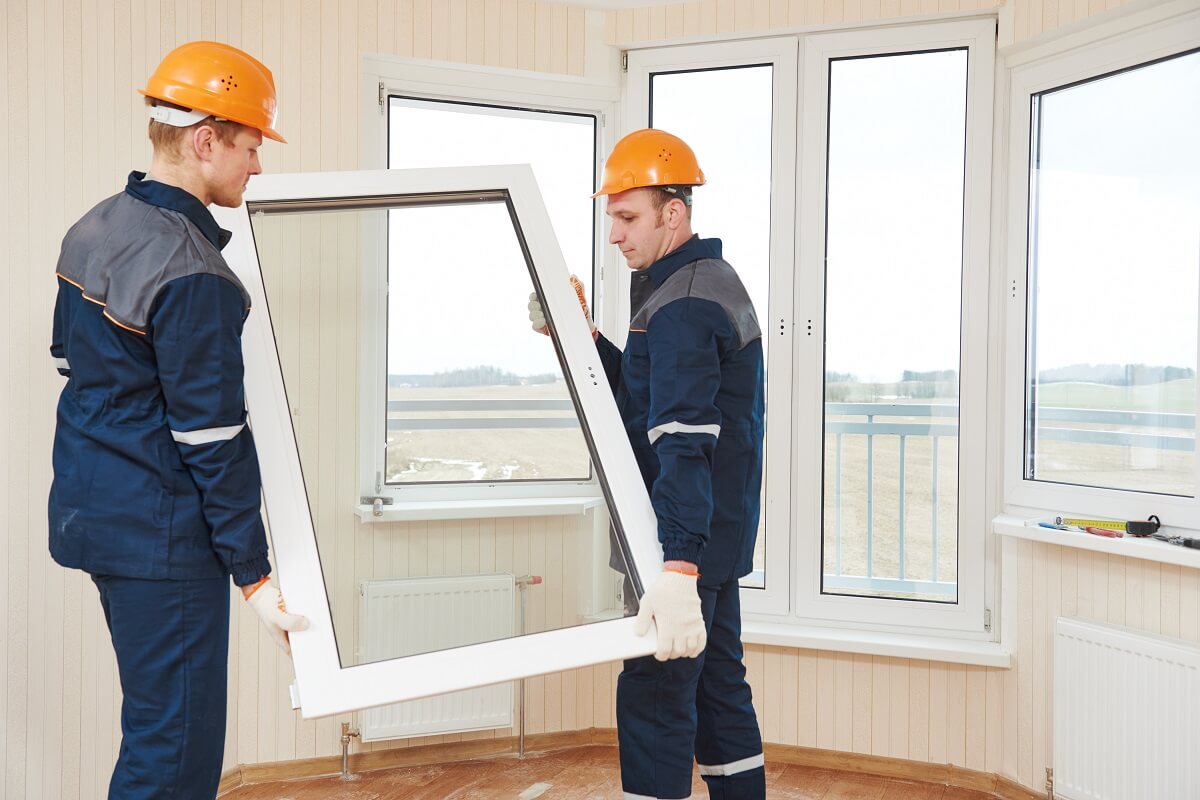
When windows start to deteriorate, they can cause all sorts of issues. Faulty windows can let in moisture and cause dampness and mold, not to mention drafts. They can also pose a security and safety risk if they no longer open and close properly.
If your windows are visibly and functionally deteriorating, things are only going one way without your intervention. The safest thing to do is replace. Replacing all the windows in your home can be a costly exercise, so many homeowners only wish to replace the problem windows. Whether or not this is cost-effective depends on your situation. For many people, replacing all the windows at once will be the best for safety, security, peace of mind, and cost.
Reasons Your Windows Need Replacing
Windows need replacing for all sorts of reasons. The main reasons for needing to replace windows include:
- Broken panes
- Leaking water
- Warped or damaged frame
- A damaged or faulty closing mechanism
- Condensation build-up between panes
- Leaking air
- Age and wear and tear
- Upgrading windows
Some of these window issues require immediate attention. Others are not so much of a priority. This means you need to examine exactly why you need new windows before deciding how many to replace.
How to Assess the Urgency
Anything that poses a risk to your security or safety requires immediate attention. Windows that don’t close properly can make you vulnerable to break-ins or can be dangerous for young children to be around. The same goes for broken panes of glass.
Windows with drafts, condensation, warping, or rot are next on the priority list. Left to their own devices, these windows will continue to deteriorate and cause more problems later down the line. However, they can be left for the immediate future, as long as they’re not a safety or security hazard.
Last on the list is aesthetics and upgrades. Changing your windows for a different style or upgrading them to be more energy efficient is nice but not urgent unless you aim to sell the property soon and wish to enhance its value.
When to Replace Only a Few Windows
If you have windows that require immediate attention, it makes good sense to prioritize them and replace only those windows. It’s important to understand, however, that the overall cost of replacing several windows is higher than having the whole house done in the long-term. This is because window installers can give discounts and incentives on bigger jobs. Because labor costs are more for smaller projects, companies tend to offer better deals when you hire them for a full day.
Also, consider that damaged windows can cost a lot more in the long-run. If you have a damaged window that needs urgent attention but cannot afford to replace other deteriorating windows, it’s best to prioritize for the sake of safety and security.
Note that replacing five windows upwards usually equates to a full day’s work. If you have five or more windows to replace, you will usually get a better deal.
When to Replace All Windows
A general rule of thumb is that windows aged 20 years or more need to be replaced. If you don’t know your windows’ age, consider a full replacement when they start showing signs of significant wear and tear.
Another reason to replace all windows is to upgrade them to a more energy-efficient model. This will help regulate the temperature in your home as well as keeping out noise pollution.
Aim to get the best price by going for a full replacement where a big job can be done in one period, reducing labor costs. You will also benefit from less paperwork, time, and potential disruption if you embark on a one-off project.
Should I Break Down Window Replacement into Smaller Projects?
The temptation for window replacement is to break it down into smaller projects and replace only a few at a time until the whole job is done. This isn’t recommended for several reasons:
- Window installers require several site visits before carrying out the work. Not only do you have to be available for all these visits, but there’s also a cost associated with them. If you’ve split the project, the visits are multiplied and the cost increased.
- Every time you start a new window project, you’ll need to clear the space, make sure someone’s home, and suffer potential disruption. It’s better to do this once rather than several times.
- One large window installation will take only a couple of days. A split project, however, will take far longer.
- Overall, the cost for smaller projects is higher than a one-off.
Conclusion
If all your windows could do with an upgrade, it’s far better to get all your windows replaced in one shot. It’s a higher upfront cost, but what you’ll save in time, hassle, and stress will be far greater.
If you have a damaged or broken window that requires immediate action, don’t wait until you can organize or afford to replace all your windows. With an unsafe window or one that will not open or close, it’s best to fix it as soon as possible.
If you have any uncertainty, we recommend that you consult a professional for advice. They will come and assess your windows and help you decide what’s best for your situation. If you let them know your budget, they’ll know exactly what you can and can’t do and give you options.
Ensure you go with a reputable, honest company. Steer clear of high-pressure sales tactics. A fair and reasonable company will give you a price to match. You may be surprised to learn that you can replace more windows than you initially thought.
